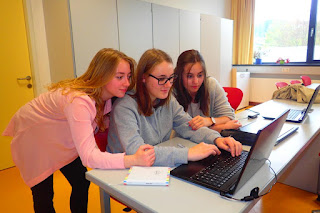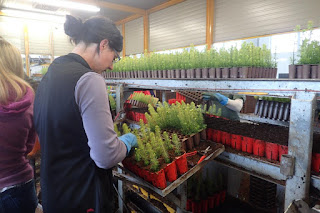This year’s Austrian project is carried out by
36 students of the Bundesgymnasium und
Bundesrealgymnasium Judenburg attending the biology course BEE (Biological
and Environmental Experiences in English). Out of this group 11 students will
join the CEI-conference in Oregon.
In relation to the sustainable “Styrian Strategy for Adaptation to Climate
Change 2050” released in September 2015, we continued the long term cooperation
with the environmental department of the municipality of Judenburg also in this
year to implement the strategy in three
fields: education and global responsibility, household of water and
water-management, conservation and biodiversity.
„Sustainable Measurements Supporting Ecosystems
in the Alpine Region: Dealing with Neobiota”
Project Group Austria 1
Established ecosystems live on rich biodiversity of organisms providing these systems with stability and resilience. However, three percent of Europian neobiota are invasive species, bringing harm to the area where they live in and reproduce.
In addition to that we wanted to find out: Why
are these organisms so successful? What do they cause? Can we stop them
becoming established here? Can we do something when they are already
established?
Therefore we supported the preparation of
factsheets on local invasive plants for the citizens of Judenburg. The local
inhabitants will soon get access to project results and information on the
municipality’s homepage and local pharmacies will hand out folders containing project
information.
Hands on weeding of invasive species with local
asylum seekers will help decrease these species and enhance stability of local
ecosystems. In summer 2017 the project group will monitor the hand-weeded areas
and data will be evaluated.












No comments:
Post a Comment